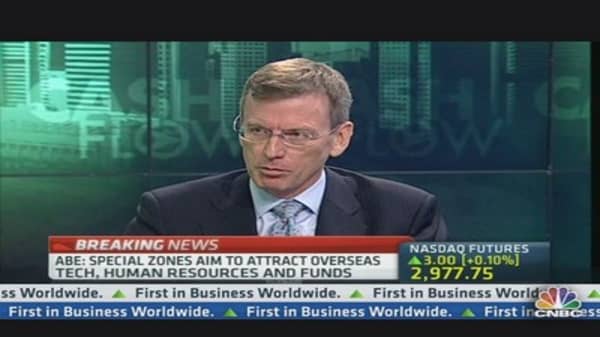In another volatile afternoon session, the Nikkei tumbled 3.8 percent to a new two-month low on Wednesday while the yen inched higher after Prime Minister Shinzo Abe's third "Abenomics" arrow failed to impress investors.
In his speech, Abe outlined measures such as setting up special economic zones to attract investment and raising incomes by 3 percent annually but failed to addressreforms surrounding the labor market and corporate taxes, which resulted in a late-afternoon sell-off.
"The comments made by Abe today were not really a game changer and disappointed a market which seems to have been positioned for a USD/JPY and Nikkei rally," wrote Stan Shamu, market strategist, IG in a note.
(Read More: Japan Fires 'Third Arrow,' Execution Now Key)
Elsewhere in the region, Australia's S&P ASX 200 index hit a five-month closing low, Seoul's Kospi hit a three-week low and the Shanghai Composite closed just above a two-and-a-half-week low.




